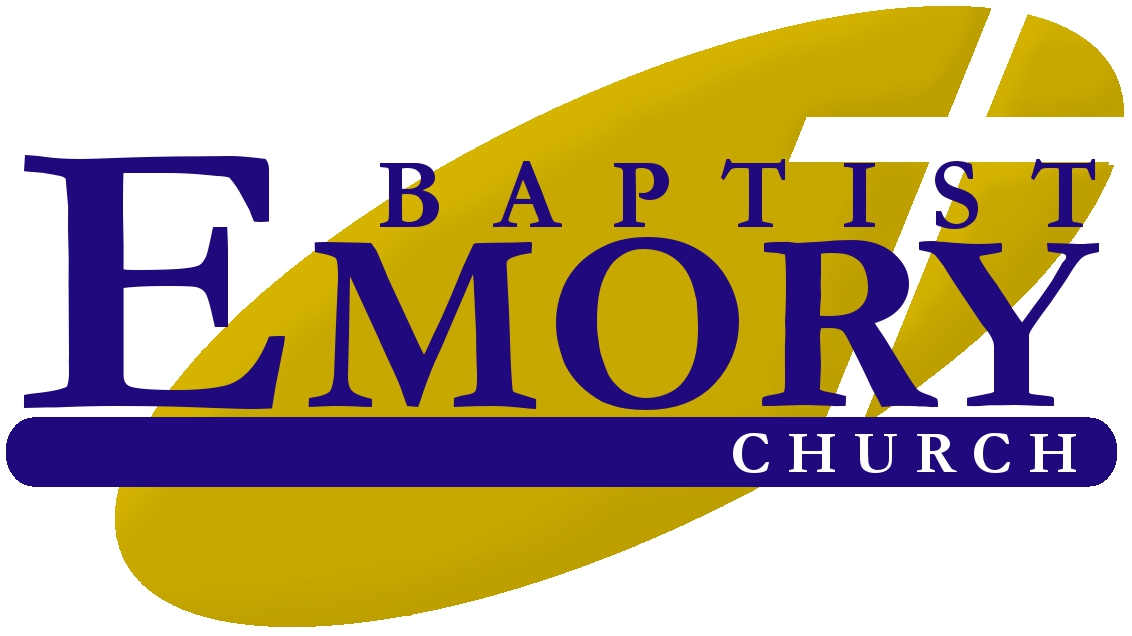Episodes

Sunday Apr 19, 2020
Lousy Tenants but a Good Landlord
Sunday Apr 19, 2020
Sunday Apr 19, 2020
We are at the end of Tuesday of Passion Week, and Jesus has just refused to answer the questions and accusations of the Jewish Religious Leaders because of their refusal to answer His return question about John the Baptist.
Jesus then began to speak to them in a parable. This is the first parable in Mark’s gospel since 4:30 and the parable of the Mustard Seed. Today’s parable is called the parable of the wicked vinedressers or the parable of the wicked tenant farmers or the parable of vine-growers or the parable of the householder and the heir.
Remember, a parable is an earthly story with a heavenly meaning. Generally speaking, Jesus used parables to reveal mysteries, to conceal realities (render judgement), and to fulfill prophecies.
Parable
1 Then He began to speak to them in parables: “A man planted a vineyard and set a hedge around it, dug a place for the wine vat and built a tower. And he leased it to vinedressers and went into a far country.
It was not uncommon for wealthy landlords to own large land estates which they leased to tenant farmers or vinedressers. The tenants would agree to cultivate the land and care for the crops while the landlords were away.
In return for their care, the landlords would give a portion of the crop to the tenants while keeping a portion for themselves. When harvest time came, the landlords would send agents on their behalf to collect their portions.
In telling this parable, Jesus was quoting from Isaiah 5.
1 Now let me sing to my Well-beloved
A song of my Beloved regarding His vineyard:
My Well-beloved has a vineyard
On a very fruitful hill.
2 He dug it up and cleared out its stones,
And planted it with the choicest vine.
He built a tower in its midst,
And also made a winepress in it;
So He expected it to bring forth good grapes,
But it brought forth wild grapes.
In verse 1, them was the Jewish Religious Leaders. The man was God, and His vineyard was the nation of Israel, God’s chosen people, and the vinedressers were the Jewish Religious Leaders or the chief priests, scribes, and elders.
The hedge was most likely a rock wall that served to keep out animals. The wine vat was underneath the winepress and caught all of the juice that was squeezed from the grapes. The tower was used for protection to see intruders and animals from afar. It also served as storage and a place for the vinedressers and their workers to stay.
2 Now at vintage-time he sent a servant to the vinedressers, that he might receive some of the fruit of the vineyard from the vinedressers. 3 And they took him and beat him and sent him away empty-handed. 4 Again he sent them another servant, and at him they threw stones, wounded him in the head, and sent him away shamefully treated. 5 And again he sent another, and him they killed; and many others, beating some and killing some.
In verse 2, it was harvest time and so the owner sent one of his servants as his agent to get his portion of the vineyard’s produce. Remember, their produce was supposed to be their rent payment.
However, the lousy tenants or vinedressers took the slave and beat him and sent him home with nothing. He sent another slave, and the turnout was the same. He sent another, and they killed him. He sent more and more, and all of them were either beaten or killed, but none returned with any crop.
These servants represent the prophets and messengers of God that God sent throughout history as His ambassadors to the nation of Israel. In the Old Testament, even before Israel, I think of Noah whose message fell on deaf ears. I think of Elijah who was driven into the wilderness by Ahab and Jezebel and ready to commit suicide.
1 Kings 19:4, 4 But he himself went a day’s journey into the wilderness, and came and sat down under a broom tree. And he prayed that he might die, and said, “It is enough! Now, Lord, take my life, for I am no better than my fathers!”
I think of Zechariah was stoned to death near the temple.
2 Chronicles 24:21, 21 So they conspired against him, and at the command of the king they stoned him with stones in the court of the house of the Lord.
In the New Testament, I think of John the Baptist who was beheaded.
Matthew 14:10, 10 So he sent and had John beheaded in prison.
Stephan who was stoned to death.
Acts 7:58, 58 and they cast him out of the city and stoned him.
God has sent countless messengers to His people, and they have rejected them.
6 Therefore still having one son, his beloved, he also sent him to them last, saying, ‘They will respect my son.’ 7 But those vinedressers said among themselves, ‘This is the heir. Come, let us kill him, and the inheritance will be ours.’ 8 So they took him and killed him and cast him out of the vineyard.
The wonderful landlord had one last idea. He decided not to send any more slaves or servants. He decided to send his son, his beloved son. He thought surely the lousy tenants would respect his son and send back his portion of the vineyard crops.
However, the lousy tenants saw the son coming and took their opportunity to remove the heir of the property. They took him and killed him and threw him out of the vineyard.
We see in these verses that God did not send another prophet. He sent His only Son, Jesus Christ, and what was true of true of the prophets turned out to be true with Jesus. They God’s Son and crucified Him.
9 “Therefore what will the owner of the vineyard do? He will come and destroy the vinedressers, and give the vineyard to others. 10 Have you not even read this Scripture: ‘The stone which the builders rejected Has become the chief cornerstone. 11 This was the Lord’s doing, And it is marvelous in our eyes’?” 12 And they sought to lay hands on Him, but feared the multitude, for they knew He had spoken the parable against them. So they left Him and went away.
Jesus then asked a rhetorical question in verse 9, “What will the owner of the vineyard do?” He went on to answer it for them. He will come and destroy the vine-dressers and give the vineyard to others.
Again, the owner is God. The vineyard is the nation of Israel but could also be seen as the Kingdom of God. The vinedressers were the chief priests, scribes, and elders.
Who are the others? The others are the Gentiles. Because Israel rejected Jesus Christ as the promised Messiah, God temporarily set them aside and has turned His attention to the Gentile world.
That doesn’t mean that He is done with Israel. It does mean that He will wait to resume that relationship with Israel until all the Gentiles who are going to be saved are saved.
Jesus further indicted the leaders of Israel in quoting Psalm 118:22-23. The stone is Christ. The builders are Israel and her leaders. They rejected Christ, but Christ became the chief corner stone or the foundation stone of the Gentile Christian Church.
As verse 12 says, obviously the Jewish Religious Leaders understood fully what the spiritual meaning was for this earthly story. The parable spoke against them and further fueled their fire against Jesus.
Conclusions
From this parable, we learn at least three truths about God and His character.
First, He is patient. In this parable, the landowner didn’t just send one servant to collect the harvest. Look at verses 2-5. He sent one and another and another, and verse 5 says many others.
God didn’t just send one prophet to Israel. He sent one and two and three and many others. God hasn’t tried just once to get your attention. He has tried once and twice and three times and many others because God is patient.
2 Peter 3:9, 9 The Lord is not slack concerning His promise, as some count slackness, but is longsuffering (or patient) toward us, not willing that any should perish but that all should come to repentance.
Second, not only is God patient, God is also love. The landowner didn’t just send his servants and multiple ones at that. In verse 6, he sent his one and only beloved son.
God didn’t just send His prophets to Israel and multiple ones at that. God sent His one and only beloved Son, Jesus Christ, to Israel and the world because of His love.
John 3:16, 16 For God so loved the world that He gave His only begotten Son, that whoever believes in Him should not perish but have everlasting life.
Finally, not only is God patient, and not only is God love, but God is also just. Eventually in the parable, Jesus said of the vinedressers in verse 9 that the landowner would come and destroy the vinedressers.
Yes, he was patient, and yes, he was love, but in the end, he was just, and he held the vinedressers responsible for their actions.
Here me this morning. Yes, God is patient, and yes, God is love, but you need to also know that God will hold you responsible and accountable for your actions, specifically how you respond to His Son, Jesus Christ.
Is Jesus your Savior this morning? Remember, God is patient, and He is love. However, don’t presume too long on His patience and disregard His Son because if you don’t receive Jesus as Savior, you will be held responsible for your sin, and your sin will send you to an eternity in hell without Christ.
Luke 13:3, but unless you repent you will all likewise perish.
Is Jesus your Lord this morning? Remember, God is patient with you sin, and He is love and will give you another chance today to repent, but don’t presume too long on His patience and disregard His Son.
God will never bless a life that is habitually characterized by disobedience instead of obedience.


No comments yet. Be the first to say something!